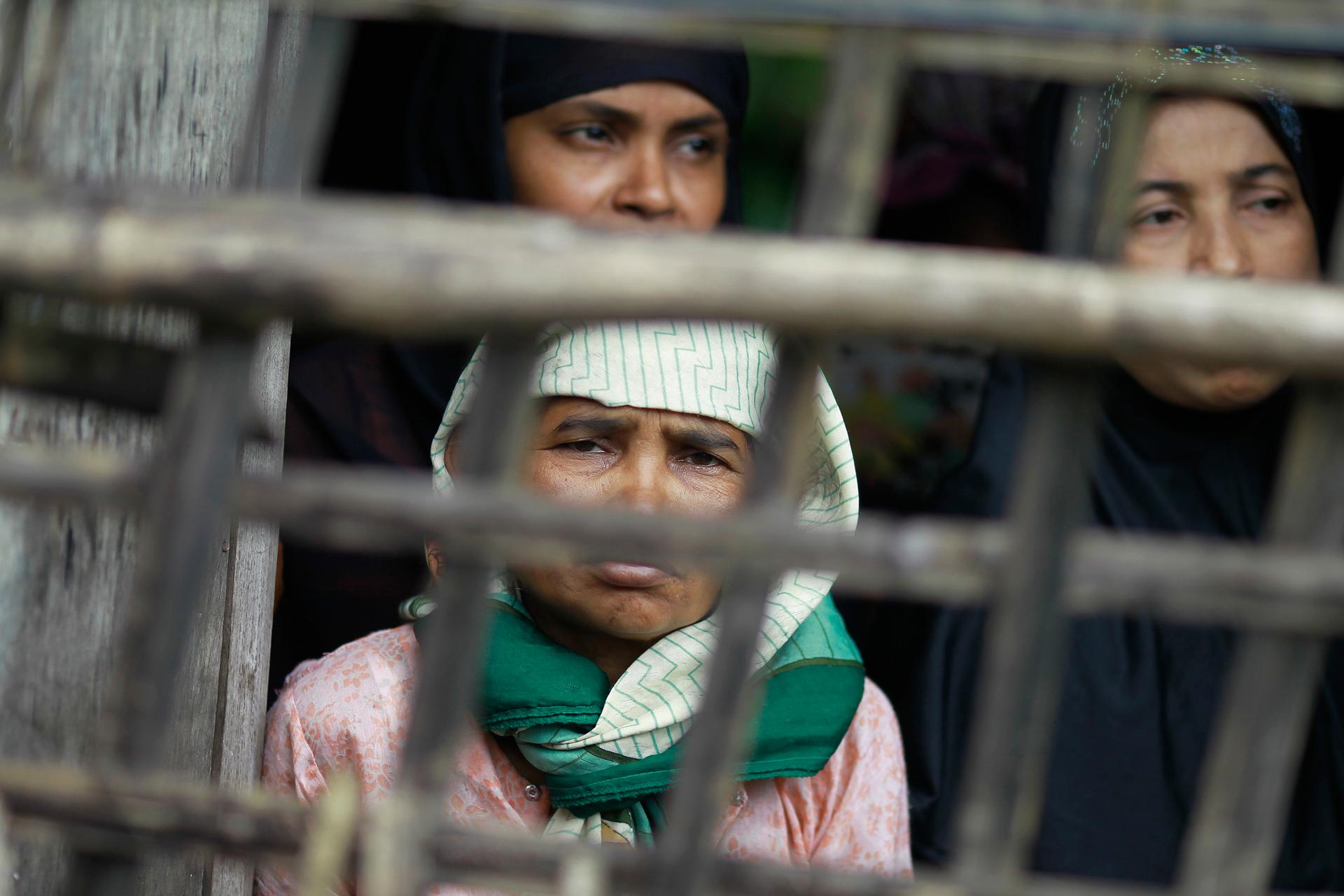Holocaust museum researcher finds early warning signs of genocide in Myanmar
Rohingya Muslim women look out from their home at Aung Mingalar quarter in Sittwe, Myanmar, August 13, 2013. Sittwe's last remaining Muslim-dominated quarter, Aung Mingalar, is locked down by police and soldiers who patrol all streets leading in and out.
Andrea Gittleman had heard alarming reports of persecution and violence against Rohingya Muslims in Myanmar, the mostly Buddhist country also known as Burma. She and her American colleagues travelled there in March to gather testimony from Rohingya victims and look for "early warning signs of genocide." She found them.
- Government policies that promote persecution and violence that have made life unliveable for Rohingya
- State-sponsored discrimination against Rohingya
- Physical segregation of Rohingya
- Separation of Rohingya from their neighbors of other ethnicities
- Rampant hate speech by religious leaders and government actors
- The denial of necessary services to Rohingya
- The denial of Rohingya voting rights
- Stripping members of the Rohingya community of their very identity
Gittleman is program manager for the United States Holocaust Memorial Museum's Simon-Skjodt Center for the Prevention of Genocide. She says, "Rohingya are so dehumanized, and so devalued in the country, [and these factors show] early warning signs of more mass atrocities and even genocide."
In 2014, Buddhist mobs went on a rampage against Rohingya Muslims. It was not the first such incident. Human Rights Watch reported on a move by Myanmar authorites to terrorize and forcibly relocate the Rohingya in 2012-13. Anti-Rohingya riots forced an estimated 140,000 Rohingya to flee their homes.
"In Rakhine state," says Gittleman, "we spoke with … people who reported how their neighbors came and burned their homes and attacked them and their families. Some of those people said that the police were actually involved in that. The government actors — some were physically present and involved in those acts of violence."
Myanmar authorities have isolated the Rohingya in a program aimed at preventing radicalization by the Bangladesh-based militant Rohingya Solidarity Organisation. Whether the RSO represents a real threat to Myanmar is the subject of debate. Myanmar has been constructing a fence that will eventually run along the entire 200-mile long border with Bangladesh, halting travel for Rohingya on both sides of the border. And eliminating an escape route for Myanmar's Rohingya.
The Rohingya have been facing discrimination, in many forms, for decades. Under Myanmar's (then Burma's) 1982 Citizenship Law, the Rohingya people were declared "non-citizens." Gittleman says, "A lot of the Rohingya who spoke with us [focused on] the stripping of their citizenship. They point to that as really the cornerstone, the foundation, of other laws that have made life even more difficult for them."
In February this year, the Myanmar government revoked Rohingya voting rights, preventing members of the ethnic group from participating in the November 2015 national election.
"There are human rights violations happening in every corner of the world," Gittleman observes,"but this situation is particularly alarming just based on the government policies of excluding a particular ethnic group, of denying that the Rohingya even exist, of forcing them to leave the country, of not allowing them to return, and making life so unliveable. It's a particular subset of human rights violations that can then lead to mass atrocities."
As a flood of Rohingya refugees seeks asylum in southeast Asian countries, social media is awash with images of the boat people.
Sadly, this pretty much sums it up. pic.twitter.com/KjBrZFIxcU
— Kenneth Roth (@KenRoth) May 26, 2015
Gittleman notes that international pressure is mounting on Myanmar to give its Rohingya people citizenship. "I hope that the Burmese government … will take very seriously the recommendation to revise its citizenship law so that entire ethnicities are not stripped of their citizenship," Gittleman concludes. "It's that kind of change that is really necessary in order to stem the other acts of oppression, of persecution, of violence that Rohingya face."
Every day, reporters and producers at The World are hard at work bringing you human-centered news from across the globe. But we can’t do it without you. We need your support to ensure we can continue this work for another year.
Make a gift today, and you’ll help us unlock a matching gift of $67,000!
